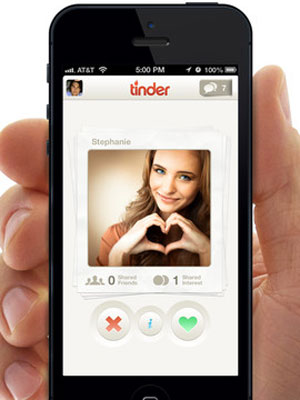.jpg)
The stigma that only desperate people resort to online dating sites hangs over society like a thick layer of fog — but in today’s world, quite a bit of interaction between people happens online. Facebook, Twitter, Instagram and other social media platforms make meeting people online second nature. But should the comfort of making friends and networking online transfer to more serious relationships?
Online dating is an option that many students never seriously consider.
According to senior business major Kyle Weir, while online dating seems like a desperate act, it makes sense in today’s online scene.
“For the most part I think it’s kinda weird, but it’s progressive though,” he said. “The world is moving more online so I guess meeting people online is kinda the next step. Social networking kinda helped that along.”
Other students, like sophomore elementary education major Kalie Stayskal, consider online dating a last resort.
“If I was in my 50s and single, I’d probably do it,” Stayskal said.
While online dating is often viewed as an option to consider if all else fails, many view it in a better light.
DIFFERENT PERSPECTIVES
Tim Muehlhoff, professor of communication studies believes that online dating is an opportunity that most people never consider looking into.
“[Do] you go with professionals … with something trying to match you up based on questionnaires, profiles?” he said. “Or do you just strike out and hope and pray that you bump into someone you’re compatible with, and are you even a good judge of ‘are we compatible?’”
According to Muehlhoff, if a couple has disagreements on core issues such as views on finances, divorce, parenting and life in general, it is less likely that the relationship will work out. Any type of social media that is trying to help people find who they’re compatible with is a good thing.
“The million dollar question becomes, … ‘How do you find a compatible person?’” he said. “After you graduate, or even while you’re at Biola, that’s a hit and miss position.”
According to a Huffington Post article, online dating is less popular among college-age students. Almost a quarter of the men and women in the 25 to 34 age bracket have used online dating sites, but among 18 to 24 year olds only 10 percent of people have visited dating sites.
But with the growing popularity of mobile apps like Tinder and OK Cupid, connecting with potential partners online is becoming increasingly easier.
Online dating simply broadens the net people cast when searching for partners. As with any form of dating, there are successes and failures.
Alumna Elisa May (‘94), administrative assistant in the department of communication studies, found success.
May met her husband of three and a half years on eHarmony.
“Considering online dating was a way to broaden the range of people that I might come into contact with…[and increase] the odds of finding a more compatible relationship,” May said.
May was a user of Christian Cafe before using eHarmony. She also became a volunteer for the site by helping approve profile pictures and, at the same time, catch scammers.
TECHNOLOGY AS A TOOL
Other than the social stigma of online dating and the threat of scammers, many people shy away from the world wide web of matchmaking because they believe God will bring that special someone into their life the in a more traditional way.
“Some people I know have a bias against online dating because they believe that you should be letting God lead you to the person that you should be with,” May said. “It’s not quite accurate to have a mindset that we should all be out waiting to bump into somebody, because as we all know, that’s a frustrating process.”
May noted that relationships have begun with letter writing for centuries before us. Online dating isn’t exactly a new concept, we just have new means of accomplishing correspondence.
“eHarmony cannot arrange marriages, it cannot match people,” she said. “It suggests potential matches according to profiles with broad based compatibility. It cannot create relationships and it cannot guarantee any outcome. It’s a tool,” May explained.
As technology continues to grow and expand, and as people use it is a tool as well as entertainment, it will likely become the new “traditional” in the years to come.







